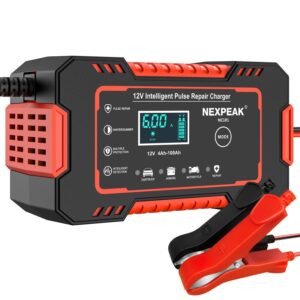Which is faster, the Challenger or the Charger? It’s a question that car enthusiasts have debated for years. And today, we’re going to dive into this hot topic and explore the speed and performance of these two iconic muscle cars. Buckle up, because we’re about to take a thrilling ride to discover the answer to the age-old question: which is faster, the Challenger or the Charger?
Which is Faster: Challenger or Charger
When it comes to American muscle cars, few vehicles evoke the same sense of power and speed as the Dodge Challenger and Charger. Both models have become icons of modern muscle cars, boasting aggressive styling and exhilarating performance. Given their similar lineage and shared drivetrains, many enthusiasts wonder which is faster: the Challenger or the Charger? In this article, we’ll delve into the performance capabilities of both cars, exploring their engines, handling, and overall speed. So buckle up and get ready to explore the thrilling world of these two iconic vehicles!
Engine Performance
One of the most critical factors in determining a car’s speed is its engine. The Dodge Challenger and Charger offer a range of powerful engine options that cater to different performance preferences. Here’s a closer look at what each model brings to the table:
Dodge Challenger
The Dodge Challenger offers a diverse lineup of engines, allowing drivers to choose between six different powertrains. From the base V6 engine to the range-topping supercharged V8, the Challenger delivers impressive performance across the board. Here’s a breakdown of the available engines:
- 3.6-liter Pentastar V6: Producing 305 horsepower, this engine provides a solid balance of power and fuel efficiency.
- 5.7-liter HEMI V8: Generating 375 horsepower, this V8 engine brings a significant boost in performance and an intoxicating exhaust note.
- 392 HEMI V8: Packing a mighty punch with 485 horsepower, this engine offers exhilarating acceleration and a spine-tingling growl.
- Supercharged 6.2-liter HEMI V8: Exclusively offered in the range-topping SRT Hellcat and SRT Hellcat Redeye trims, this engine delivers an astonishing 717 to 797 horsepower, depending on the variant. It’s the epitome of power and speed in the Challenger lineup.
- Supercharged 6.2-liter HEMI V8: Found in the track-focused SRT Super Stock, this engine takes performance to another level with a staggering 807 horsepower output.
Dodge Charger
Like its Challenger sibling, the Dodge Charger offers a range of potent engines that cater to different performance preferences. Here’s a breakdown of the available engine options in the Charger lineup:
- 3.6-liter Pentastar V6: The base engine in the Charger produces 292 horsepower, providing a decent amount of power for daily driving.
- 5.7-liter HEMI V8: Similar to the Challenger, the Charger’s HEMI V8 generates 370 horsepower, delivering a significant boost in performance over the V6.
- 392 HEMI V8: This powerful V8 engine pumps out 485 horsepower, offering thrilling acceleration and a commanding presence on the road.
- Supercharged 6.2-liter HEMI V8: Reserved for the Charger SRT Hellcat and SRT Hellcat Redeye models, this engine produces the same impressive power outputs as in the Challenger lineup, ranging from 717 to 797 horsepower.
- Supercharged 6.2-liter HEMI V8: The SRT Super Stock variant of the Charger also features the mighty 807-horsepower engine, making it the ultimate performance sedan in the lineup.
Acceleration and Speed
While engine power is a crucial factor in determining a car’s speed, acceleration and overall performance are equally important. Let’s compare the Challenger and Charger in terms of acceleration and top speed:
Dodge Challenger
The Challenger’s acceleration and top speed abilities vary across its engine options. Here’s a breakdown of the approximate 0-60 mph (0-97 km/h) times and top speeds for each engine variant:
| Engine | 0-60 mph (0-97 km/h) | Top Speed |
|---|---|---|
| 3.6-liter V6 | 6.2 seconds | 130 mph (209 km/h) |
| 5.7-liter V8 | 4.5 seconds | 155 mph (249 km/h) |
| 392 HEMI V8 | 4.2 seconds | 168 mph (270 km/h) |
| Supercharged 6.2-liter V8 | 3.4 seconds | 199 mph (320 km/h) |
| Supercharged 6.2-liter V8 (SRT Super Stock) | 3.25 seconds | 168 mph (270 km/h) |
Dodge Charger
While the Charger shares similar engines with the Challenger, its larger size and weight affect its acceleration and top speed capabilities. Here are the estimated 0-60 mph (0-97 km/h) times and top speeds for each engine variant in the Charger lineup:
| Engine | 0-60 mph (0-97 km/h) | Top Speed |
|---|---|---|
| 3.6-liter V6 | 6.4 seconds | 130 mph (209 km/h) |
| 5.7-liter V8 | 4.5 seconds | 155 mph (249 km/h) |
| 392 HEMI V8 | 4.1 seconds | 168 mph (270 km/h) |
| Supercharged 6.2-liter V8 | 3.6 seconds | 196 mph (315 km/h) |
| Supercharged 6.2-liter V8 (SRT Super Stock) | 3.25 seconds | 168 mph (270 km/h) |
Handling and Performance Modifications
In addition to engine power and straight-line speed, handling plays a crucial role in a car’s overall performance. Both the Challenger and Charger boast impressive handling capabilities, thanks to their rear-wheel-drive platform and advanced suspension systems.
It’s worth noting that both models offer performance-oriented trims labeled under the “SRT” (Street and Racing Technology) umbrella. These high-performance trims feature additional enhancements such as Brembo brakes, sport-tuned suspension, and performance tires, further enhancing their handling and overall performance. Additionally, various performance packages and aftermarket modifications are available for both vehicles, allowing enthusiasts to customize their ride to their specific driving style and preferences.
The Verdict
So, which is faster: the Challenger or Charger? The answer ultimately depends on the specific engine variant and configuration chosen. However, the performance differences between the two models are generally minor, especially when comparing models equipped with the same engine.
If straight-line speed and acceleration are your primary concerns, the supercharged V8 variants in both the Challenger and Charger tend to offer the most thrilling performance. On the other hand, if you prioritize a spacious interior and practicality without sacrificing too much speed, the Charger’s larger size and four-door sedan layout may be more attractive.
Ultimately, the choice between the Challenger and Charger boils down to personal preference and intended use. Whether you prefer the aggressive styling of the Challenger or the practicality of the Charger, both vehicles deliver exhilarating performance and an unforgettable driving experience.
Note: The performance figures provided in this article are approximate and can vary based on factors such as vehicle configuration, weight, and driving conditions.
Frequently Asked Questions
Question: Which car is faster, the Challenger or the Charger?
Answer: Both the Dodge Challenger and the Dodge Charger offer impressive speed and performance, but the answer to this question depends on the specific model and engine configuration you choose. The Challenger is known for its muscle car heritage and offers a range of powerful engines, including the supercharged Hellcat V8 and the Demon V8, which can deliver incredible acceleration and top speeds. On the other hand, the Charger also offers a variety of engine options, including the Hellcat and the Scat Pack, which can provide exhilarating speed and performance. Ultimately, the choice between the Challenger and the Charger comes down to personal preference and the specific features you prioritize.
Question: Is the Challenger faster than the Charger?
Answer: In certain configurations, the Dodge Challenger can be faster than the Charger due to its lighter weight and more aerodynamic design. However, it’s important to note that both cars offer powerful engine options that can deliver impressive speed and performance. Factors such as engine size, transmission type, and overall vehicle setup can all influence the acceleration and top speed of each car. Ultimately, it’s recommended to test drive both models and compare their performance to determine which one suits your driving preferences and needs.
Question: Does the Charger have better acceleration than the Challenger?
Answer: The acceleration of the Dodge Charger can vary depending on the chosen engine and configuration. The Charger offers multiple engine options, including the Hellcat and the Scat Pack, which provide strong acceleration capabilities. While the Challenger has a reputation for being a bit lighter and potentially faster in certain setups, the Charger’s powerful engines can still deliver excellent acceleration and impressive performance on the road. Again, personal preference and specific driving requirements will play a significant role in deciding which car’s acceleration is better suited for you.
Question: Which car is better for drag racing, the Challenger or the Charger?
Answer: Both the Dodge Challenger and the Dodge Charger can be modified to excel in drag racing, as they share many of the same engines and performance features. The Challenger’s more compact size and lighter weight can give it a slight advantage in certain racing scenarios. However, the Charger’s longer wheelbase and improved aerodynamics can also offer benefits in terms of stability and control. In the end, it’s important to consider how you plan to modify the car and what specific aspects of drag racing are most important to you before making a decision.
Final Thoughts
In terms of speed, both the Challenger and Charger are powerful vehicles. The Challenger, known for its performance, offers various engine options that provide impressive acceleration and top speeds. On the other hand, the Charger, also a formidable contender, boasts a range of engines that deliver exceptional power and speed. Ultimately, which one is faster depends on the specific model and engine configuration. Whether you prefer the Challenger or Charger, both offer exhilarating speed and performance that will satisfy any speed enthusiast. So, when it comes to the question of “which is faster, Challenger or Charger?” it all comes down to personal preference and the specific model you choose.


